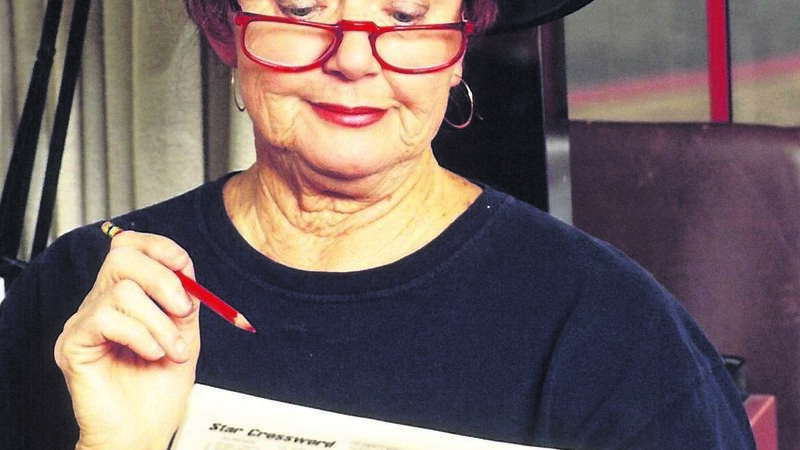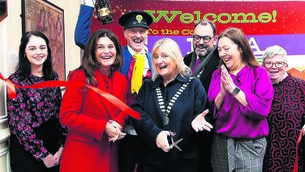How a daily crossword is good for the brain

Working out mental puzzles can strengthen the neural pathways of our brain. Picture iStock
DECEMBER 21 can mean many things to people - the winter solstice, a rapidly approaching Christmas, a slightly larger chocolate in an advent calendar...
Of course, these people are all missing the point - the real significance of December 21 is that it is Crossword Puzzle Day.
Slightly facetious of course, but I’ve been a crossword enthusiast since being introduced to them by my English teacher aged 13. I’ve done them regularly since then, but since I moved into psychology, I’ve been interested in what the psychological processes involved, and the benefits accruing, might be.
An area that seemed an obvious focus is what we call verbal fluency - our ability to generate words based on shared meaning (semantic verbal fluency - SVF) and shared structure (phonemic verbal fluency - PVF).
We typically assess these by asking people to list as many animals (SVF) or words beginning with a specific letter (PVF) as they can think of in one minute.
This might seem simple, but in neuro-psychological terms it’s linked to a lot of processes we associate with the frontal lobe of the brain - that most recent evolutionary addition that more than anything else neurological separates us from other animals.
Perhaps more interestingly, verbal fluency is associated with improved ability to express oneself, is found to decline with age, and is commonly affected in dementia. Developing and maintaining verbal fluency ability is a very good thing.
So why would crosswords seem a potentially useful weapon?
Well, analysis of crosswords by Raymond Nickerson of Tufts University in Massachusetts suggested two important points: crossword clues fit into three forms - semantic and thematic (which are very similar to SVF), and structural (similar to PVF); and a key strategy in people’s approach to crosswords is the ‘generate-and-test’ method - coming up with candidate items and testing against the criteria when we are seeking words is very like the process of coming up with responses to crossword clues where you don’t immediately know the answer.
Colleagues and I conducted three separate studies on this topic, and the outcomes showed that there was real value across the life span in doing crosswords.
Firstly, we recruited 74 university students, asked half to attempt a simple crossword daily for four weeks, and asked the other half not to make such an effort.
We assessed SVF both before and after, and found that in that short time the crossword group had improved compared to the others.
We then tried the same form of study with 37 older people, with half doing a daily crossword and half completing a daily gratitude diary; on this occasion we found that PVF performance improved in the crossword group.
In our third study, with 53 young adults, we decided to adapt the model, and we divided crossword clues into semantic/thematic, and structural, and then asked one-third of our participants to complete the structural, one-third the semantic/thematic, and one-third a gratitude diary, every day for four weeks.
At the end, we found that the structural group had experienced a large improvement in PVF, which was significantly greater than either of the other groups, while the semantic/thematic group did better than the diary group - so both word puzzle groups improved.
Both puzzle groups also improved relative to the diary group in SVF, though not as markedly and not with statistical significance - it is possible that SVF is also improved by word puzzles, but that our number of participants was just too small to confirm this.
How does all of this happen? It all comes down to the magic and beauty of the human brain.
Our brains contain about 100 billion cells, and each cell can receive messages from thousands of other cells - this richness is crucial to our functioning. And the brain is changing all the time; like a muscle it responds to exercise, and as we perform certain tasks we see increased associated connections between relevant parts of the brain.
So, as we do crosswords and seek words, we strengthen these pathways. This is neural plasticity at work.
Obviously, this is not a limitless improvement; if our verbal fluency is excellent and we regularly exercise it, crosswords won’t make a huge difference to us.
But if we are struggling to find the words to express ourselves, even a short period of doing crosswords might help.
And it’s not just crosswords; mental activities have frequently been found to be linked to better cognitive functions (such as memory and language) - so they’re not just fun, they’re really beneficial.
Turn to the puzzle pages now!







 App?
App?




